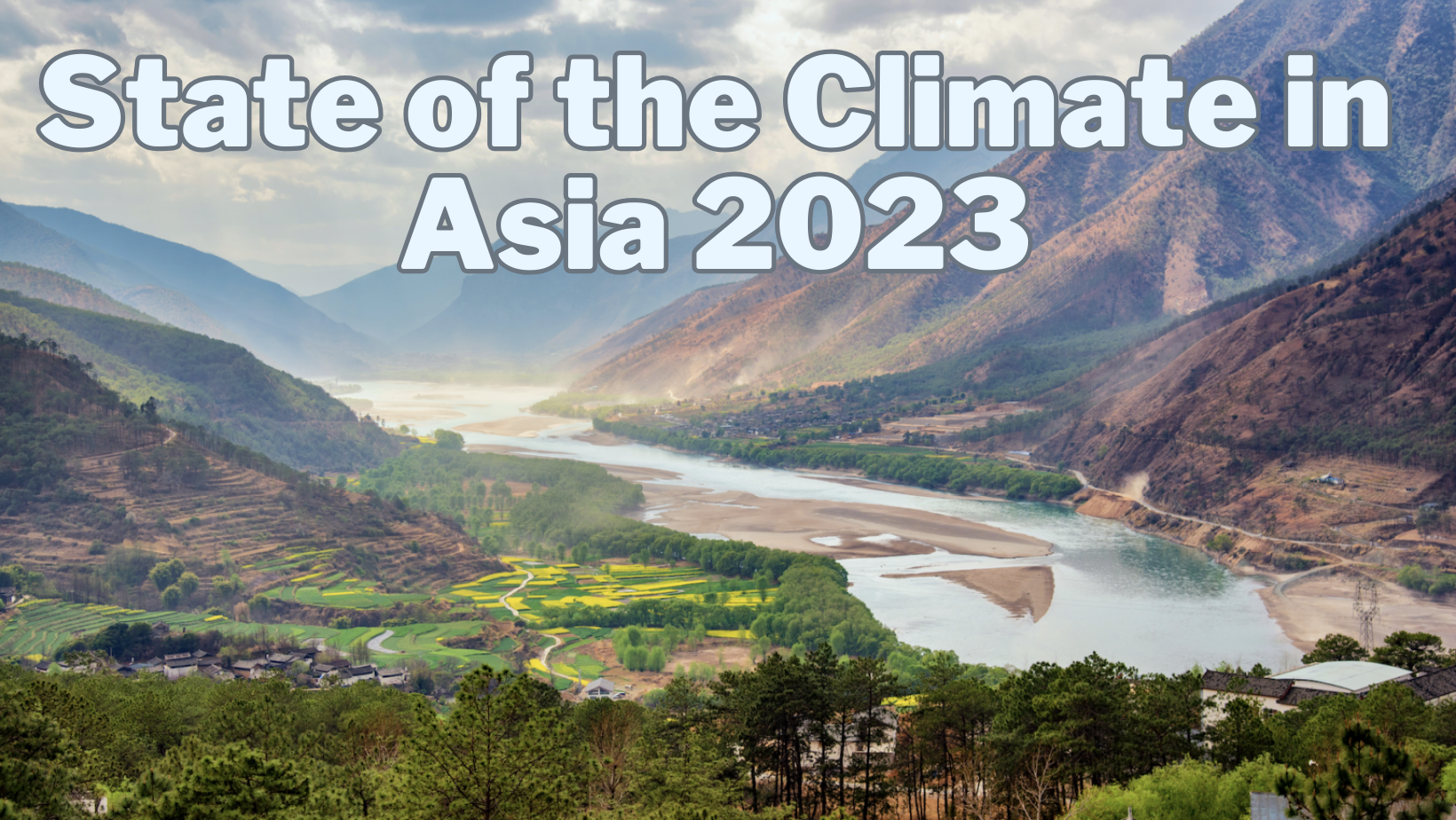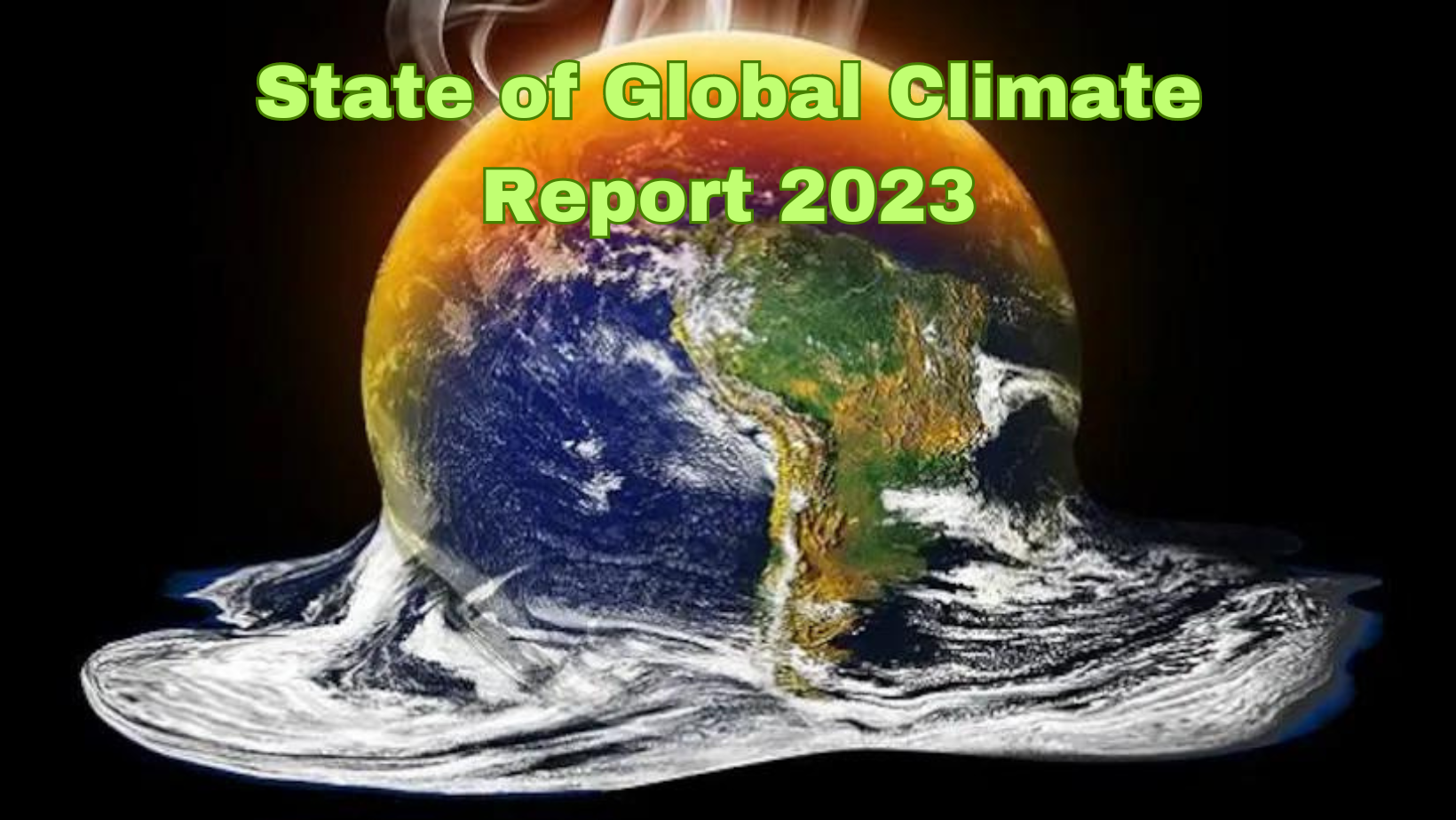State of the Climate in Asia 2023 Report

- 24 Apr 2024
Why is it in the News?
As Asia is warming faster than the global average, it is witnessing more extreme weather, climate, and water-related events than any other region across the world.
Highlights of the State of the Climate in Asia 2023 Report:
- The 2023 State of the Climate in Asia Report, spearheaded by the World Meteorological Organization, sheds light on significant climate trends and events across the continent:
- In 2023, Asia witnessed 79 extreme climate events, affecting over nine million individuals, making it the most disaster-affected region.
- Atmospheric concentrations of carbon dioxide, methane, and nitrous oxide soared to unprecedented levels in 2022.
- Oceans have absorbed approximately a quarter of the carbon dioxide emitted annually into the atmosphere since 1960, resulting in record-high ocean heat content in 2023.
- Tropical cyclone activity over the North Indian Ocean surpassed the average.
- 2023 marked Asia's second-highest mean temperature on record, with Japan and Kazakhstan experiencing record warmth.
- Glacial retreat accelerated in 2023, particularly in the East Himalayas and Central Asia's Tian Shan mountains, due to elevated temperatures and arid conditions.
About the World Meteorological Organisation:
- The World Meteorological Organization (WMO) is a specialized agency of the United Nations with a membership of 193 member states and territories.
- It is the UN system's authoritative voice on the state and behavior of the Earth's atmosphere, its interaction with the oceans, the climate it produces, and the resulting distribution of water resources.
- WMO originated from the International Meteorological Organization, the roots of which were planted at the 1873 Vienna International Meteorological Congress.
- Established by the ratification of the WMO Convention on 23 March 1950, WMO became the specialized agency of the United Nations for meteorology (weather and climate), operational hydrology, and related geophysical sciences a year later.
- The Secretariat, headquartered in Geneva, is headed by the Secretary-General.
- Its supreme body is the World Meteorological Congress.
State of Global Climate Report 2023

- 20 Mar 2024
Why is it in the News?
In line with a host of observations by climate agencies in the preceding three months, the World Meteorological Organisation (WMO) has officially confirmed 2023 to be the hottest year on record.
About the State of Global Climate Report 2023:
- Published annually by the World Meteorological Organization (WMO), the State of Global Climate Report provides a detailed analysis of the Earth's climate system.
- Contributors to the report include various UN organizations, National Meteorological and Hydrological Services, Global Data and Analysis Centers, Regional Climate Centres, the World Climate Research Programme (WCRP), and more.
Highlights of the 2023 Report:
- Record-Breaking Global Temperatures: 2023 was the hottest year on record, with a global average near-surface temperature of 1.45°Celsius (±0.12°C) above the pre-industrial baseline.
- The past ten years were also the warmest decade recorded.
- Extensive Marine Heatwaves: Nearly one-third of the global ocean experienced a marine heatwave on an average day in 2023.
- Over 90% of the ocean had faced heatwave conditions at some point during the year, negatively impacting ecosystems and food systems.
- Unprecedented Glacier Ice Loss: Preliminary data reveals the largest loss of ice since 1950 for the global set of reference glaciers, driven by extreme melt in western North America and Europe.
- Surge in Renewable Energy Capacity: Renewable capacity additions in 2023 increased by almost 50% from 2022, totaling 510 gigawatts (GW) and marking the highest rate in the past two decades.
- These findings emphasize the pressing need to address climate change through effective international cooperation, policymaking, and sustainable practices.
About the World Meteorological Organisation (WMO):
- The World Meteorological Organization (WMO) is a specialized agency of the United Nations that fosters international cooperation in atmospheric science, climatology, hydrology, and geophysics.
- Founded in 1950, WMO originated from the International Meteorological Organization established in 1873 to facilitate the exchange of weather data and research.
- Today, WMO comprises 193 member countries and territories and promotes the free exchange of meteorological and hydrological data, information, and research.
- By collaborating with various partners, WMO contributes to environmental protection, climate change mitigation, and sustainable development efforts worldwide.
- Headquarters: Geneva, Switzerland.
